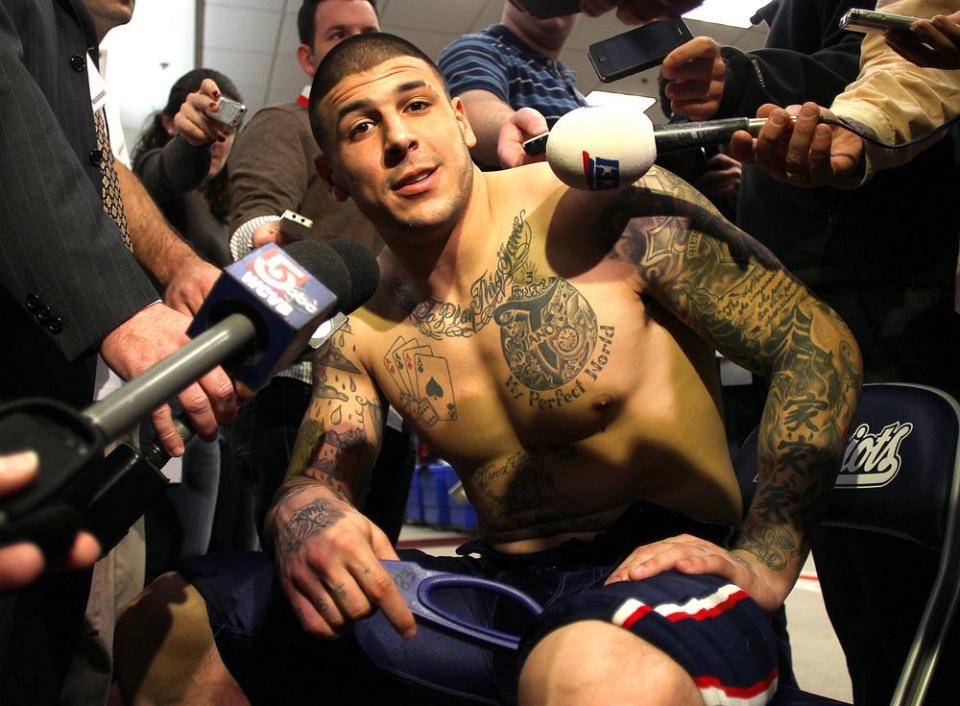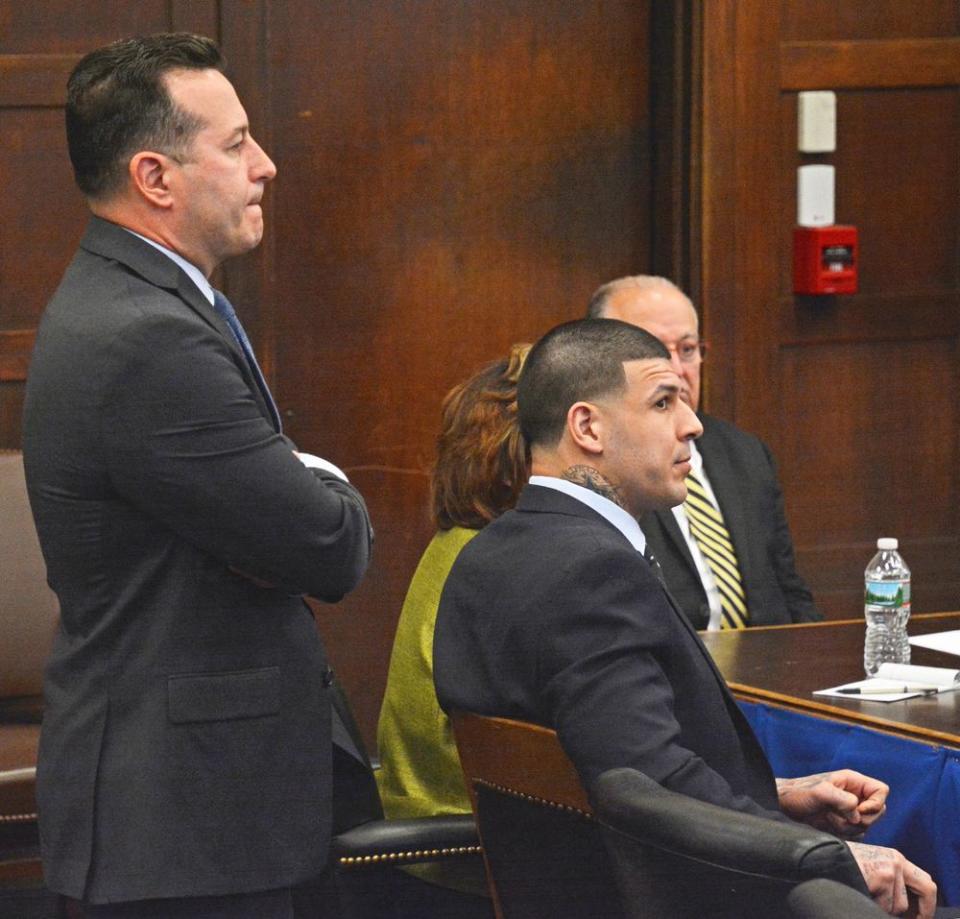Aaron Hernandez Blamed Mom for His Crimes: 'I Had Nobody. You F---ed Me Up'

For years, those close to Aaron Hernandez have tried to make sense of his rise and his tragic fall.
Once a young star in the NFL, his violent streak lost him everything as he became entangled in multiple criminal cases. In 2017, he died by suicide when he hanged himself with a bed sheet in prison. He was 27.
Hernandez’ death came just five days after he was acquitted of double murder charges in the deaths of two men outside a Boston nightclub in 2012. Found not guilty in one case, he was already serving a life sentence for masterminding the 2013 murder of Odin Lloyd, his fiancée’s sister’s boyfriend. He was not eligible for parole.
Netflix is investigating the life of the former Patriots tight end in Aaron Hernandez, the Killer Inside, a three-part documentary that will be released on January 15.
“No one has allegedly murdered two people then played an entire season as a professional athlete,” the trailer states.
The documentary also plays a recording of Hernandez seemingly confronting his mother, Terri Hernandez, for causing his problems. “I was the happiest little kid in the world, and you f—ed me up,” he says to her.
“I ain’t living with that,” she replies.
“You did,” he responds. “I had nobody. What’d you think I was going to do? Become a perfect angel?”
While awaiting trial for the murder of Odin Lloyd in 2013, Hernandez made a series of recorded jailhouse calls to his mother in which he blamed her for many of his problems, but expressed interest in repairing his relationship with her.
In an interview last year, Hernandez’s older brother told PEOPLE that Aaron suffered physical, emotional and sexual abuse before devolving into a life of violence.
“He had a lot of things happen, both good and bad,” Jonathan Hernandez told PEOPLE. “People think they know about my brother, but they really don’t. They know what they saw in the news, but they don’t know all the struggles he faced.”

As an adult, Aaron disclosed that he had been sexually molested when he was young. Jonathan also alleged that their father, who died in 2006, was physically abusive. “Our father would hit us for anything from a bad grade to disrespectful behavior to sheer clumsiness,” he told PEOPLE.
When Jonathan threatened to call child welfare officials, his father challenged him, he says: “He handed me the phone before saying, ‘Call them. As soon as you hang up the phone, I will beat you boys harder than you’ve ever been beat before. They will have to pull me off of you after they break down the door.’ “
Want to keep up with the latest crime coverage? Sign up for PEOPLE’s free True Crime newsletter for breaking crime news, ongoing trial coverage and details of intriguing unsolved cases.

Aaron’s attorneys have said that he suffered severe chronic traumatic encephalopathy (CTE), a degenerative brain disease that has been linked to head trauma and has been diagnosed in multiple NFL players.
“Aaron experienced a chaotic and horrendous existence in many respects, due to his undiagnosed brain injury,” his attorneys said in a lawsuit against the NFL. In another part of the suit, which is still pending, his estate said that CTE causes “aggression, explosive behavior, loss of concentration, mood swings, depression, apathy, and cognitive impairment.”
An NFL spokesman said last year the league “intend[ed] to contest the claims vigorously,” according to USA Today.
RELATED: Aaron Hernandez’s Prison Suicide Notes Released — ‘Love, Repent … I’ll See You All in Heaven’
All of these issues are addressed in the Netflix documentary, which also deals with the fallout from Hernandez’s actions. “This isn’t just the Aaron Hernandez story,” a voiceover commentator in the trailer says. “There were a lot of lives affected by this guy.”
